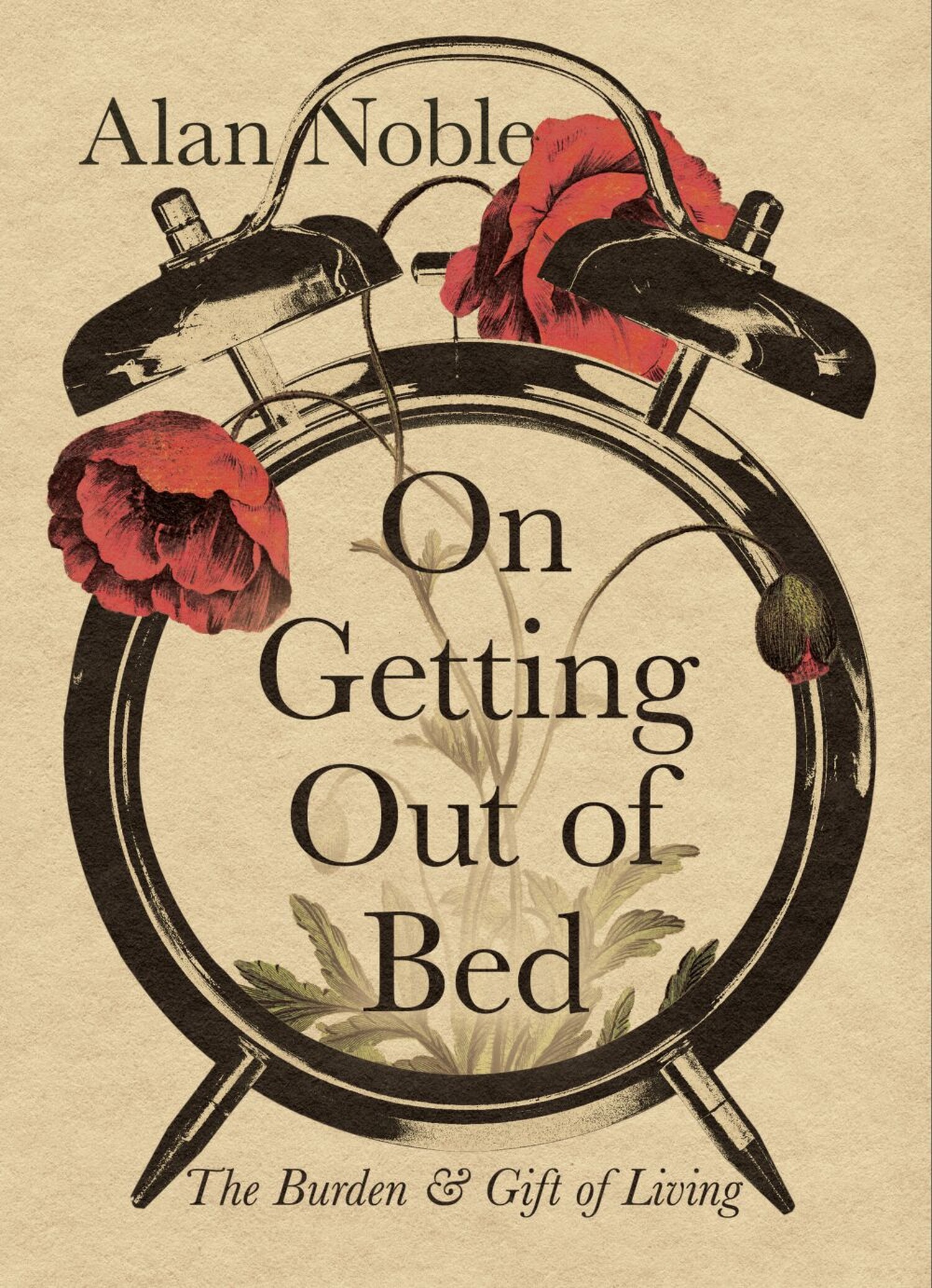
God’s peace is in no way constrained by my imagination.
An excerpt from “On Getting Out of Bed: The Burden and Gift of Living”
We all suffer silent crises, carrying burdens that are incommunicable to those closest to us and occasionally even opaque to ourselves. Some suffer from diagnosed mental illnesses, some from undiagnosed, and some from mental suffering that has no medical categorization yet is no less real and terrible and hard. But your existence is good.
Even when you can’t feel it or rationally understand it, life remains good. And while suffering is a normal part of fallen human life, it is not the essence of life. At the center of existence is not suffering but grace—the grace of Christ. The grace that created you, that cleanses you from all unrighteousness and provides all the blessings of this life. The same God who sent His Son to die for you sustains your existence and created you—you—miraculous you, because He loves you. Whether you believe it or not.
At the heart of being is grace, not suffering. “For nothing is real save his grace,” says Cormac McCarthy in the book The Crossing. We will forget this fact many times throughout our lives. The task before us is to hold each other up, to remind one another of the truth that is truer than our deepest misery, to attend to the gift God has given us, and to accept that our lives are good even when we do not feel that goodness at all.
One of the most comforting verses in all of the Bible is Philippians 4:6-7, when Paul commands us to not be anxious for anything (good luck with that one) but to pray and let our requests be made known to God. Paul tells us that when we do this—when we stop trying to internalize all our anxiety or fix everything ourselves, but we turn to God, acknowledging our dependence on Him and giving thanks—then “the peace of God, which surpasses all understanding, will guard your hearts and your minds in Christ Jesus.”
These verses have sometimes been twisted to claim that all anxiety is merely a failure to trust God. And while sometimes that is why we are anxious, it is not the only reason. What Paul offers is not an alternative to therapy and medication nor a simple fix to the agony that often abides. Instead, he offers us a peace that can enable us to carry on.
What gets me every time is that the peace of God goes beyond “all understanding.” I don’t know how I would handle life if this weren’t true. Very often, I cannot understand how I can have any peace or how I could deserve any peace. I cannot rationally see that things are okay, or that they ever could be okay. I don’t understand how I could be okay. I can’t solve things or see a way out of the messes I’m in. Sometimes I cannot even imagine tomorrow, or at least a tomorrow worth getting out of bed for.
But none of that matters. God’s peace is in no way constrained by my imagination. I don’t have to have a rational explanation for why my suffering is worth enduring today— and that’s not what I need anyway. I need both my heart and my mind to be comforted, to be guarded. My emotions and my thoughts will betray me, but I know He is faithful.
Meditating on these verses usually does not jar me out of my anxiety. But it does ground me. It reminds me why I can persevere. I may only be able to say, “Lord, I do not feel nor understand Your peace, but I know Your peace is beyond my understanding. So I will trust You. And I will act.”
At the end of Cormac McCarthy's book The Road, the father must take a leap of faith. Because he is dying, he had planned to kill his son to protect him from greater suffering after he himself is gone. But when the time comes, he chooses instead to let his son live, trusting in the goodness of God—that God will care for his son despite the horrific dangers of the world. The father’s peace is an uneasy peace, and it comes at great personal cost. Sometimes that’s what peace is: an action based on faith and not an emotional state. The father in the novel has peace because he trusts in God beyond all his own understanding. Some days that may be all you have: the knowledge that God loves you and desires you to get out of bed, regardless of all the reasons you may find to give up. So you act out your peace in fear and trembling.
Adapted from On Getting Out of Bed by Alan Noble. ©2023 by Alan Noble. Used by permission of InterVarsity Press. www.ivpress.com.
Cover image by Laura Chouette.


